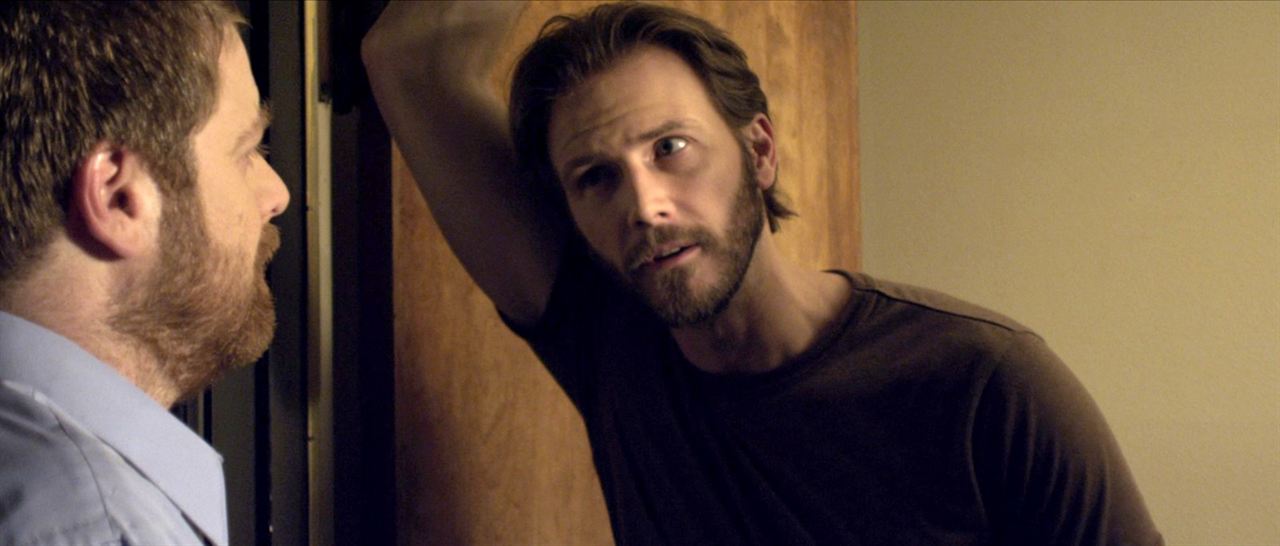Pit Stop is a quiet, deeply human drama that explores love, loneliness, and emotional recovery in the aftermath of heartbreak. Directed by Yen Tan, the 2013 film stands out for its understated realism and tender portrayal of two gay men navigating the complexities of small-town life in Texas. Far from the clichés of urban queer cinema, Pit Stop paints a poignant picture of isolation and hope in a place where silence often says more than words.
The story follows Gabe (Bill Heck), a construction worker who lives an ordinary life in a small Texas town. He’s recently separated from his wife, with whom he shares a young daughter, and although their relationship remains friendly, it’s marked by quiet sadness. Gabe is also involved in a secret affair with a married man — a relationship destined to end. Despite his loneliness, he clings to the hope of finding something genuine, something lasting. Meanwhile, across town, Ernesto (Marcus DeAnda), a Mexican-American man, is also living with loss. His long-term boyfriend has moved away, leaving him in an emotional limbo between longing and resignation. He spends his days working at a local store and caring for a comatose ex-lover, trapped in a routine that feels both comforting and suffocating.
Their stories unfold in parallel, each man moving through his own solitude, until their paths finally cross. Yet Pit Stop is not a film about grand gestures or instant love. When Gabe and Ernesto finally meet, their connection is quiet, tentative, and real — a gentle spark rather than an explosion. The beauty of the film lies in this subtlety: it doesn’t force romance or resolution but allows emotion to build naturally, in soft moments and small exchanges. The audience witnesses two people learning to trust again, to open themselves up to the possibility of love after pain.

Yen Tan’s direction is deliberate and minimalist, capturing the stillness of small-town life with honesty and restraint. The film’s cinematography uses wide, sunlit shots of open highways, gas stations, and modest homes to reflect the emotional distance and quiet beauty of its setting. Every frame feels grounded in realism, echoing the rhythms of daily life in rural America. The sound design is similarly understated — the hum of a ceiling fan, the rustle of wind, the passing of cars — all contributing to the sense of loneliness and waiting that permeates the film.
The performances are remarkable for their authenticity. Bill Heck’s Gabe is stoic yet tender, carrying the weight of someone trying to rebuild a life piece by piece. Marcus DeAnda’s Ernesto, in contrast, exudes quiet empathy and strength, revealing his vulnerability through small gestures and fleeting expressions. Their chemistry is not fiery but steady — built on shared silence, understanding, and mutual respect. It’s a love story about patience and the courage to start over, not about passion in the conventional sense.

What makes Pit Stop so moving is its emotional honesty. It captures a side of queer life rarely shown on screen — one defined not by tragedy or flamboyance, but by ordinariness, by the universal search for connection and peace. The film treats its characters with dignity and compassion, showing that love, no matter how quiet or delayed, can still be transformative.
Ultimately, Pit Stop is a film about healing. It reminds us that even in the stillness of heartbreak, there is hope — that love can emerge not with fireworks, but with the gentle hum of everyday life. In its simplicity and sincerity, Pit Stop becomes an unforgettable meditation on what it means to love again, after everything seems lost.



